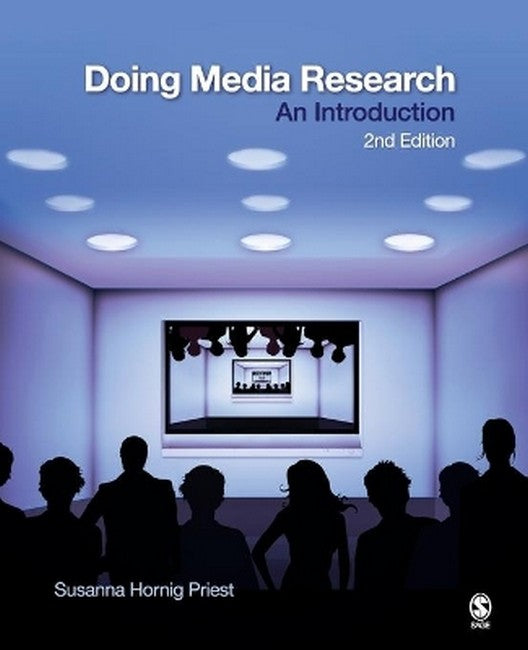Susanna Hornig Priest, Ph.D., has taught mass communication theory and research methods at the undergraduate and graduate level beginning in 1989. She holds a doctoral degree in communications from the University of Washington, a master's degree in sociology from the University of Nevada, Las Vegas, and a bachelor's degree in anthropology from the University of California at Berkeley. Her own research is centered on the role of science in American society and culture, its expression in the mass media, public engagement in science and science policy, and public opinion formation. She is also interested in the social roles of new media technologies. Priest has served as a member of the Research and Publications committees of the Association for Education in Journalism and Mass Communications and as chair and research chair of the Association's Science Communication Interest Group. She is a Fellow of the American Association for the Advancement of Science, past associate editor of the journal Public Understanding of Science, and current editor of the journal Science Communication. She regularly serves as an advisor to a wide range of academic projects, government agencies, and private organizations on communication, public engagement, and public opinion issues, and reviews research submissions for a variety of academic organizations and scholarly journals. Her current research is supported by grants from the National Science Foundation and other sources. Her publications include over 30 refereed research articles and nearly 20 book chapters, plus 2 books and the Encyclopedia of Science and Technology Communication, for which she served as General Editor. Currently, she is based in Camano Island, WA, and edits Science Communication.
Request Academic Copy
Please copy the ISBN for submitting review copy form
Description
PART I. ROOTS: SOCIAL SCIENCE FOUNDATIONS 1. A Philosophy of Social "Science" Qualitative Versus Quantitative Methods Deductive Versus Inductive Logic Applied Versus Basic Research The Limits of Social Science Research 2. Foundational Disciplines Anthropology and the Range of Human Experience Psychology and the Experimental Method Sociology and the Study of Human Social Groups 3. Mass Communication as a Research Field Origins of Mass Communication Research Qualitative Versus Quantitative Research Revisited Content Analysis as a Key Research Tool Mass Communication and New Media PART II. ASKING QUESTIONS AND COLLECTING DATA: CREATING A RESEARCH PLAN 4. Developing a Research Question, Reviewing the Literature, Exploring Data Sources, and Defining Variables Reviewing the Academic Literature The Nature of Academic Publishing Defining and Refining Your Research Questions More About the Role of Theory Finding Resources and Data for Your Project Defining and Measuring Variables 5. Designing Quantitative Research: Surveys, Experiments, and Quantitative Content Analysis Survey Design Basics Designing Basic Experiments Content Analysis 6. Designing Qualitative Studies: Participant Observation, Interviews, Focus Groups, and Qualitative Content Analysis Participant Observation Interviews Focus Groups Qualitative Content Studies PART III. APPROACHES TO DATA ANALYSIS: BASIC TOOLS 7. Describing a Numerical Data Set and Making Inferences Levels of Measurement Identifying and Summarizing Patterns Reasoning From Sample to Population 8. Testing Hypotheses and Exploring Other Relationships Testing Simple Hypotheses Understanding Chi-Square Comparing Two Means Working With Complex Variables Multivariate Techniques for Statistical Analysis 9. Qualitative Analysis: Identifying Themes and Writing Meaningful Summaries Working With Theory and Identifying Themes Analyzing Qualitative Data Other Forms of Analysis Writing Descriptive Summaries Relating Data to Conclusions PART IV. RESEARCH IN BROADER CONTEXT: CONTEMPORARY TRENDS IN THE DISSEMINATION OF RESEARCH RESULTS 10. Research Horizons: Opportunities and Challenges New Media Technology Research in a Global Village Ethics in Research: A Further Note 11. Writing and Presenting the Research Report Constructing the Research Paper About Conference Presentations A Concluding Note

